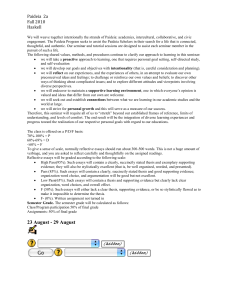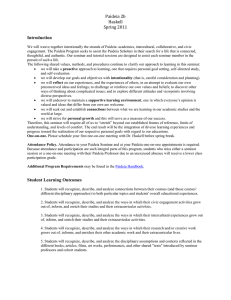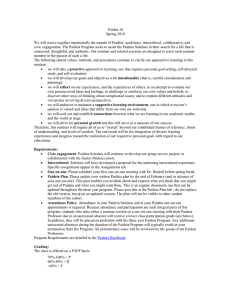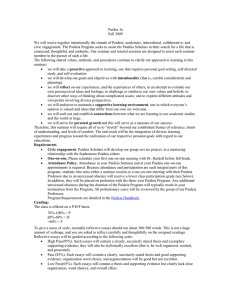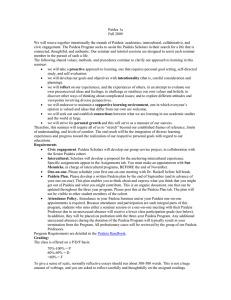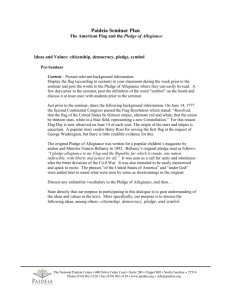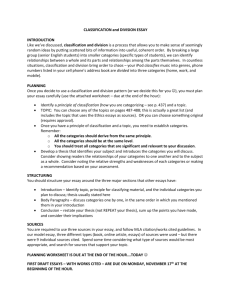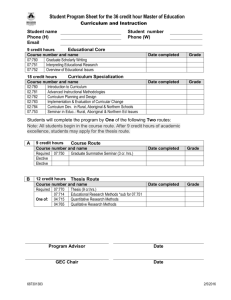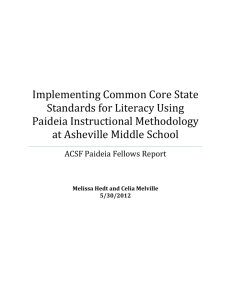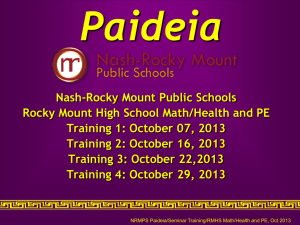paideia3b_10.html
advertisement
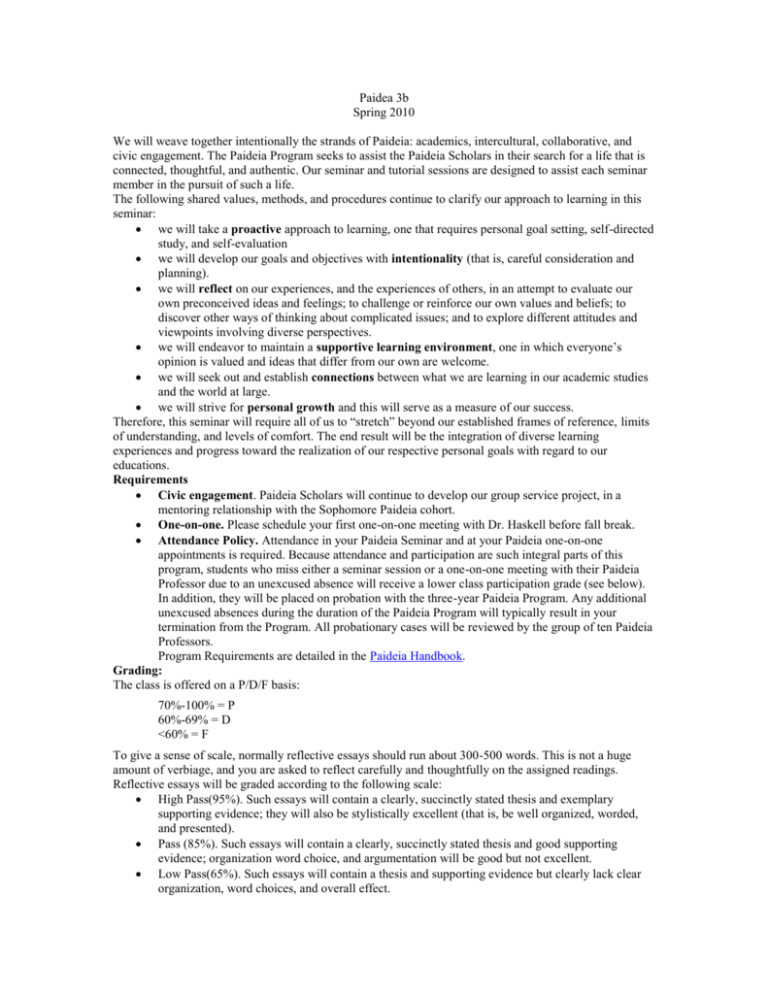
Paidea 3b Spring 2010 We will weave together intentionally the strands of Paideia: academics, intercultural, collaborative, and civic engagement. The Paideia Program seeks to assist the Paideia Scholars in their search for a life that is connected, thoughtful, and authentic. Our seminar and tutorial sessions are designed to assist each seminar member in the pursuit of such a life. The following shared values, methods, and procedures continue to clarify our approach to learning in this seminar: we will take a proactive approach to learning, one that requires personal goal setting, self-directed study, and self-evaluation we will develop our goals and objectives with intentionality (that is, careful consideration and planning). we will reflect on our experiences, and the experiences of others, in an attempt to evaluate our own preconceived ideas and feelings; to challenge or reinforce our own values and beliefs; to discover other ways of thinking about complicated issues; and to explore different attitudes and viewpoints involving diverse perspectives. we will endeavor to maintain a supportive learning environment, one in which everyone’s opinion is valued and ideas that differ from our own are welcome. we will seek out and establish connections between what we are learning in our academic studies and the world at large. we will strive for personal growth and this will serve as a measure of our success. Therefore, this seminar will require all of us to “stretch” beyond our established frames of reference, limits of understanding, and levels of comfort. The end result will be the integration of diverse learning experiences and progress toward the realization of our respective personal goals with regard to our educations. Requirements Civic engagement. Paideia Scholars will continue to develop our group service project, in a mentoring relationship with the Sophomore Paideia cohort. One-on-one. Please schedule your first one-on-one meeting with Dr. Haskell before fall break. Attendance Policy. Attendance in your Paideia Seminar and at your Paideia one-on-one appointments is required. Because attendance and participation are such integral parts of this program, students who miss either a seminar session or a one-on-one meeting with their Paideia Professor due to an unexcused absence will receive a lower class participation grade (see below). In addition, they will be placed on probation with the three-year Paideia Program. Any additional unexcused absences during the duration of the Paideia Program will typically result in your termination from the Program. All probationary cases will be reviewed by the group of ten Paideia Professors. Program Requirements are detailed in the Paideia Handbook. Grading: The class is offered on a P/D/F basis: 70%-100% = P 60%-69% = D <60% = F To give a sense of scale, normally reflective essays should run about 300-500 words. This is not a huge amount of verbiage, and you are asked to reflect carefully and thoughtfully on the assigned readings. Reflective essays will be graded according to the following scale: High Pass(95%). Such essays will contain a clearly, succinctly stated thesis and exemplary supporting evidence; they will also be stylistically excellent (that is, be well organized, worded, and presented). Pass (85%). Such essays will contain a clearly, succinctly stated thesis and good supporting evidence; organization word choice, and argumentation will be good but not excellent. Low Pass(65%). Such essays will contain a thesis and supporting evidence but clearly lack clear organization, word choices, and overall effect. F (50%). Such essays will either lack a clear thesis, supporting evidence, or be so stylistically flawed as to make it impossible to determine the thesis. F- (0%). Written assignment not turned in Semester Grade. The semester grade will be calculated as follows: Class/Program participation 50% of final grade Assignments: 50% of final grade Classes Week of January 18 Discussion of: RGV status Book to read for semester. Week of February 1 Continue pursuit of RGV Week of February 15 Meet with Suzy Pukys to discuss alternatives to RGV. Week of March 1 Develop alternative to RGV Week of March 29 Meet with Sophomore Cohort to discuss KIPP school option. Week of April 5 Be prepared to discuss review of Jared Diamond 's book in the Washington Post.
